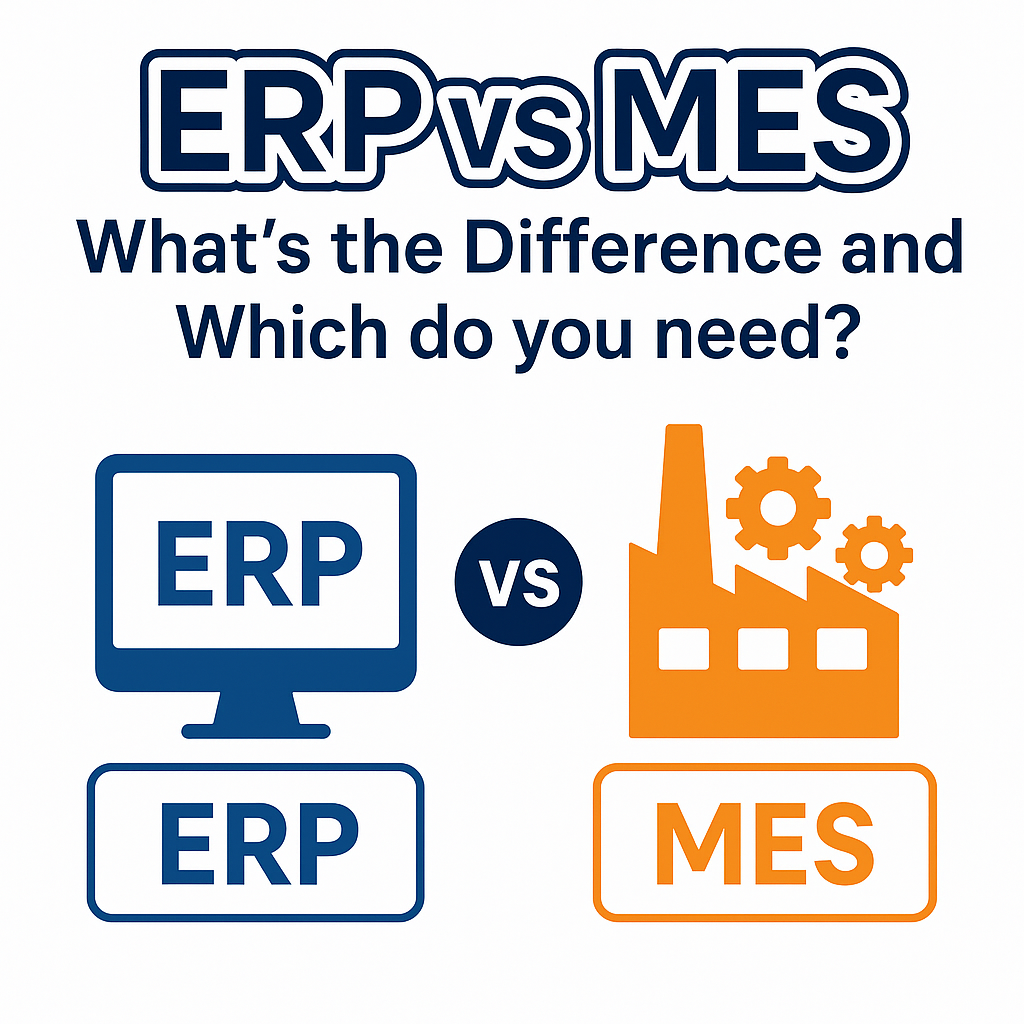
In today’s manufacturing world, acronyms are getting thrown around fast, and ERP (Enterprise Resource Planning), and MES (Manufacturing Execution Systems) are two that create confusion for many small and mid-sized manufacturers. But where does ERP stop and MES start? Do they overlap? Do you really need both? What happens if you pick the wrong one?
Let’s break it down so you can make the right decision for your shop floor, whether you are in metal fabrication, machining, powder coating, or any other type of manufacturing.
An Enterprise Resource Planning System (ERP) for manufacturing is your business-wide backbone. It serves as your business’ operating system by managing and connecting core business functions including but not limited to:
A modern manufacturing ERP also connects the office to the shop floor, giving you real-time visibility into machines, labour, inventory, and performance.
A Manufacturing Execution System (MES) lives directly on the shop floor. It is focused on:
An MES answers, “What’s happening on the shop floor right now”, while an ERP connects that data to the rest of the business.
The line between an ERP and MES is blurrier than ever. Advanced ERP solutions like OnRamp have integrated shop floor control, real-time machine monitoring, and production dashboards. These features are traditionally found in a standalone MES platform.
This means for many small to mid-sized manufacturers, a robust ERP can do 80-90% of what a separate MES would do, without the extra software, cost, or IT headaches.
To make the differences clearer, here’s a side-by-side comparison of ERP and MES for manufacturers:
As you can see, ERP and MES serve different but related purposes. The good news for small to mid-sized manufacturers is that an integration solution like OnRamp delivers the MES functionality you need without the added complexity of running two separate systems.
For high volume, highly specialized manufacturing operations, such as large automotive plants, or complex electronic assembly, a separate MES can make sense. In these cases:
In these environments, ERP can handle the big picture business management, while MES handles every second of the shop floor activity.
Most manufacturers in metal fabrication, machining, or powder coating, a complete, integrated ERP solution purpose-built for manufacturing does the job by:
A complete ERP solution like OnRamp gives small to mid-sized manufacturers the best of both worlds: the big picture control, plus shop floor detail.
Still not sure if you need an ERP, or MES, or both? Let us help you break it down for your business Contact us to discuss the best fit for your operation.
Check out a related blog on How a Manufacturing ERP Cuts Downtime

For more information about how OnRamp ERP software can add value to your business fill in the contact form below. A member of our support team will contact you within 1 business day to discuss any questions you have.
Start the collaboration with us while figuring out the best solution based on your needs.
Has your business outgrown a patchwork of disconnected systems? This checklist helps you assess readiness, identify gaps, and prepare for a smooth transition.